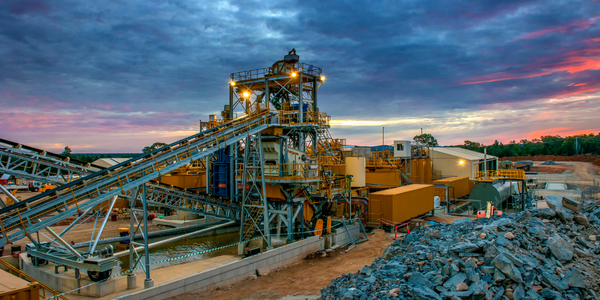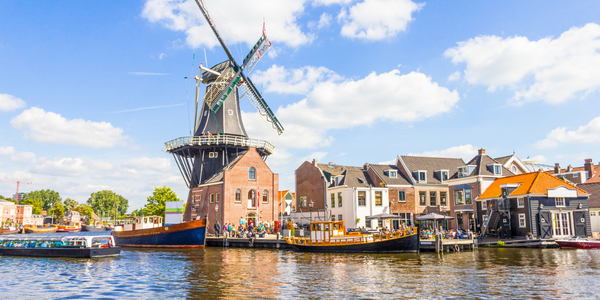Customer Company Size
Large Corporate
Region
- Asia
Country
- Saudi Arabia
Product
- WhatsApp Business Platform
- Unifonic
- Maha
Tech Stack
- WhatsApp API
- Geolocation Capabilities
Implementation Scale
- Enterprise-wide Deployment
Impact Metrics
- Cost Savings
- Customer Satisfaction
- Productivity Improvements
Technology Category
- Application Infrastructure & Middleware - API Integration & Management
Applicable Functions
- Logistics & Transportation
Use Cases
- Track & Trace of Assets
- Real-Time Location System (RTLS)
- Chatbots
Services
- System Integration
- Software Design & Engineering Services
About The Customer
SPL, formerly Saudi Post, is a government-operated agency providing logistical and postal services to make shipping all kinds of goods and products efficient across the Kingdom of Saudi Arabia (KSA) and the world. In mid-2019, SPL launched an innovative strategy to build a national group that pioneers logistical postal services that integrate with KSA’s Vision 2030 programs to bring KSA on the world stage. The company is tasked with helping people, businesses, and government agencies across the Kingdom of Saudi Arabia (KSA) send and receive packages.
The Challenge
SPL, a government-operated postal services firm in Saudi Arabia, was tasked with ensuring the security and reliability of deliveries across the Kingdom. With the rise of Saudi Arabia in the ranks of global e-commerce markets, SPL needed faster, more accurate communication with customers, government officials, business partners, and transport teams. For over 20 years, SPL used one-way SMS to send delivery updates and customers could only connect with the company through a call center or social media. If shipping information was inaccurate or incomplete, SPL had to find that customer, which could delay receipt of their package.
The Solution
SPL partnered with customer engagement platform Unifonic to develop “Maha”, an automated virtual assistant powered by WhatsApp Business Platform. Once customers access Maha through entry points on the SPL website and social media, they’re greeted with upwards of 13 menu options allowing them to track shipments, find local post offices, calculate shipping prices, and search the full SPL product catalog. Through geolocation capabilities in WhatsApp, SPL is developing a national address system that expedites deliveries. When a customer receives a notification that their packages are coming, they can respond with their current location or another preferred address. Those exact geo-coordinates are sent directly to a courier also using WhatsApp, ensuring that deliveries arrive correctly the first time without repeated follow-ups.
Operational Impact
Quantitative Benefit

Case Study missing?
Start adding your own!
Register with your work email and create a new case study profile for your business.
Related Case Studies.

Case Study
IoT Applications and Upgrades in Textile Plant
At any given time, the textile company’s manufacturing facility has up to 2,000 textile carts in use. These carts are pushed from room to room, carrying materials or semi-finished products. Previously, a paper with a hand-written description was attached to each cart. This traditional method of processing made product tracking extremely difficult. Additionally, making sure that every cart of materials or semi-finished products went to its correct processing work station was also a problem. Therefore, the company desired an intelligent solution for tracking assets at their factories. They also wanted a solution that would help them collect process data so they could improve their manufacturing efficiency.

Case Study
Goldcorp: Internet of Things Enables the Mine of the Future
Goldcorp is committed to responsible mining practices and maintaining maximum safety for its workers. At the same time, the firm is constantly exploring ways to improve the efficiency of its operations, extend the life of its assets, and control costs. Goldcorp needed technology that can maximize production efficiency by tracking all mining operations, keep employees safe with remote operations and monitoring of hazardous work areas and control production costs through better asset and site management.

Case Study
Leading Tools Manufacturer Transforms Operations with IoT
Stanley Black & Decker required transparency of real-time overall equipment effectiveness and line productivity to reduce production line change over time.The goal was to to improve production to schedule, reduce actual labor costs and understanding the effects of shift changes and resource shifts from line to line.

Case Study
Buoy Status Monitoring with LoRa
The Netherlands are well-known for their inland waterways, canals, sluices and of course port activities. The Dutch Ministry of Infrastructure indicates that there are thousands of buoys and fixed items in and near water environments that would profit from IoT monitoring. One of the problems with buoys for example, is that they get hit by ships and the anchor cable breaks. Without connectivity, it takes quite some time to find out that something has happened with that buoy. Not to mention the costs of renting a boat to go to the buoy to fix it. Another important issue, is that there is no real-time monitoring of the buoys at this moment. Only by physically visiting the object on the water, one gains insight in its status.
Case Study
IoT Based Asset Tracking System
The existing system used by the customer could only track a few thousand assets and was able to generate only a few standard set of reports. As the number of assets tracked grew exponentially, the system started to break at the seams. The Tracking devices were from different manufacturers following different protocols. There was no proper integration among the devices to send instant alerts. There are thousands of tracking devices spread across multiple geographies, that are moving. The configuration and troubleshooting of these devices incurred heavy costs, which was a logistics challenge. The existing system did not provide sophisticated Analytics, Business Intelligence and Insights from the data








